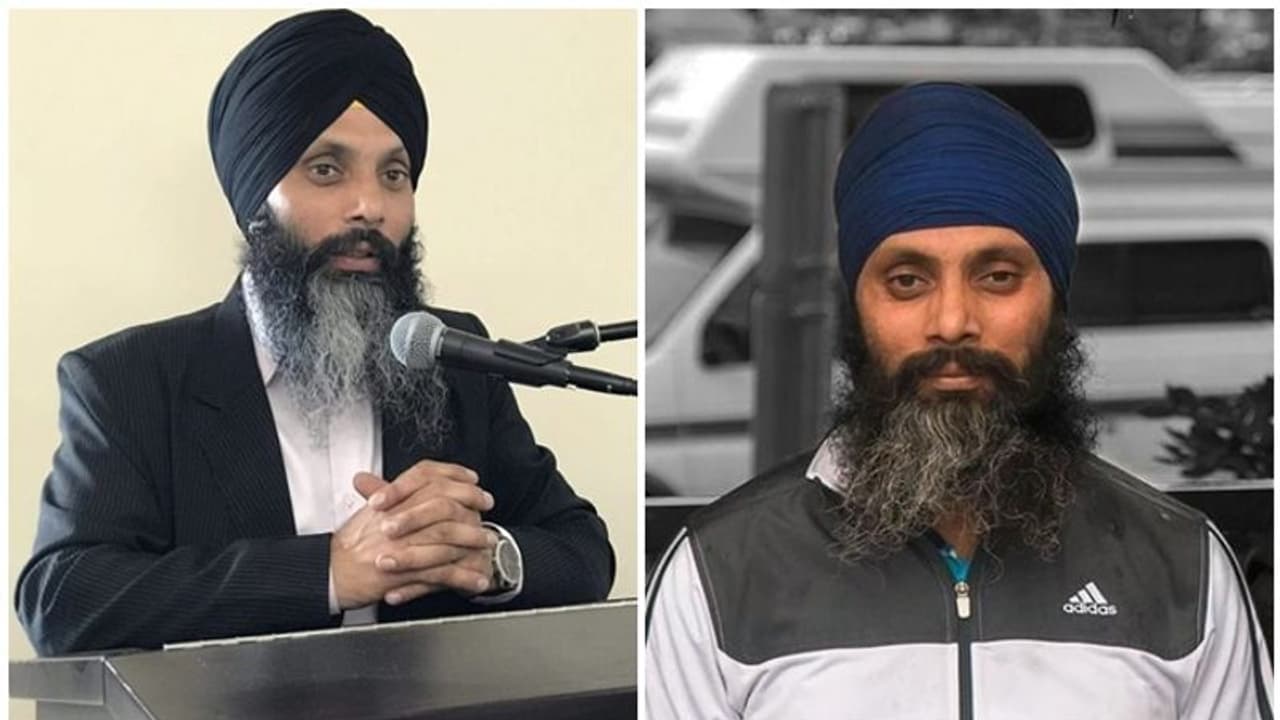Asianet Newsable accesses an intelligence dossier which talks of Hardeep Singh Nijjar's involvement in terrorism, gurdwara politics, and criminal networks. It also raises questions about the actions of the Canadian government that allowed a 'terrorist' with an Interpol red corner notice to operate freely on its soil.
Instead of taking immediate action, Canadian authorities placed terrorist Hardeep Singh Nijjar on a 'no-fly list' during 2017-18 after receiving information from New Delhi, which included details of over a dozen criminal cases involving murder and other terrorist activities in India. This action was taken despite the issuance of an Interpol red corner notice (RCN) against Nijjar in November 2014.

According to an intelligence dossier compiled in India, Nijjar became involved in gurdwara politics in Canada and obtained Canadian citizenship, although the circumstances surrounding this are unclear. He purportedly did this to shield himself from the RCN and to avoid extradition to India. In 2021, Nijjar reportedly assumed the role of president of a gurdwara in Surrey, British Columbia, after a dispute with his cousin and the previous president, Raghbir Singh Nijjar.
Exploiting his religious identity, Nijjar transformed the gurdwara into a hub for Khalistani activities, attracting a community of radical Canadian Sikhs. Previously associated with Khalistan Commando Force militant Gurdeep Singh @Deepa Heranwala, who was involved in over 200 killings in Punjab during the 1980s and 1990s, Nijjar came into contact with Babbar Khalsa International (BKI) terrorists and later Khalistan Tiger Force (KTF) leader Jagtar Singh Tara during a visit to Pakistan in April 2012.
According to the intelligence dossier, Tara provided Nijjar with training in handling weapons and improvised explosive devices (IEDs) during this visit. In 2013, Tara sent Harjot Singh Birring, based in the United States, to Canada to train Nijjar in using handheld GPS devices.
Nijjar began raising funds for terror activities in India through associates involved in drug and arms smuggling in Canada. He reportedly sent one million Pakistani currency to Tara. In collaboration with Tara, Nijjar formed a gang in Canada, which included individuals like Mandeep Singh Dhaliwal, Sarbjit Singh, Anupveer Singh, and Darshan Singh. These individuals received arms training in British Columbia, Canada, in December 2015, as outlined in the dossier.
In 2014, Nijjar planned a terrorist attack on the Dera Sacha Sauda headquarters in Sirsa, Haryana, on Tara's orders. However, the plan did not materialize as Nijjar was denied an Indian visa. After Tara's deportation to India in 2015, Nijjar assumed the role of KTF 'Operations Chief.' The National Investigation Agency (NIA) registered multiple cases against Nijjar and obtained an RCN against him for his involvement in creating a module in Canada with Mandeep Singh Dhaliwal.
Nijjar also collaborated with Punjab-based gangster Arshdeep Singh Gill @ Arsh Dala to carry out terrorist activities in Punjab. He tasked Arshdeep with the murder of the father-son duo Manohar Lal Arora and Jatinderbir Singh Arora in 2020 as retribution for their perceived "anti-Panthic activities." The attack resulted in the death of Manohar Lal in Bathinda on November 20, 2020, while his son escaped. The dossier alleges that Nijjar sent money from Canada to fund their murder.
In 2021, Nijjar reportedly instructed Arshdeep to assassinate a priest in Bhar Singh Pura, but the attempt failed, and the priest survived. Originally from the village of Bhar Singh Pura in Jalandhar, Nijjar became involved in a criminal lifestyle under the influence of Gurnek Singh@ Neka. Due to his involvement in various terrorism cases, Nijjar fled to Canada in 1997 using a forged passport.
He applied for asylum in Canada, claiming fear of persecution in India. However, his asylum application was rejected due to a fabricated narrative. Just 11 days later, Nijjar entered into a 'marriage' arrangement with a woman who sponsored his immigration. Although his subsequent immigration application was initially declined by Canadian authorities, he appealed the rejection in Canadian courts and was ultimately granted Canadian citizenship.
